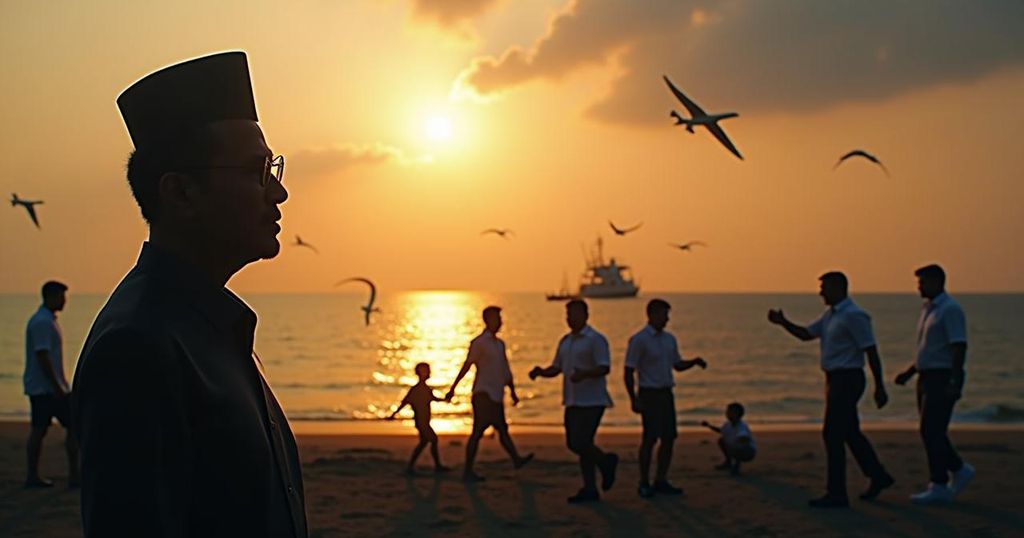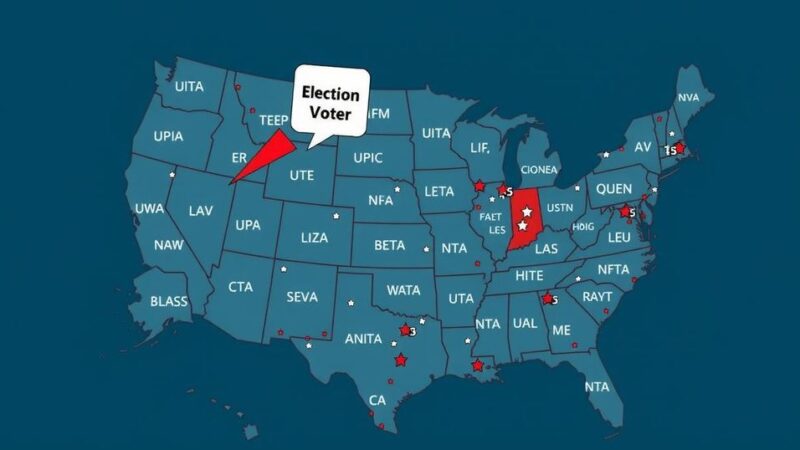Maldivian President Mohammed Muizzu is set to visit India to seek a substantial financial bailout amid a looming economic crisis. His electricity reflects a shift from previous anti-India sentiments toward a more reconciliatory stance, acknowledging India’s critical role as a development partner. The Maldives faces a precarious financial situation, with dwindling reserves leading to heightened risks of default, necessitating urgent negotiations for support from India before a potential crisis unfolds.
Maldivian President Mohammed Muizzu has articulated his belief that India will extend financial assistance to the Maldives, which is grappling with an impending economic crisis. As he embarks on a significant five-day visit to India beginning Sunday, Muizzu aims to negotiate a bailout potentially amounting to hundreds of millions of dollars. Presently, the Maldives is facing a precarious financial situation, with its foreign currency reserves dwindling to a mere $440 million, sufficient for only about one and a half months of imports. In an email interview with the BBC prior to his visit, President Muizzu stated, “India is fully cognizant of our fiscal situation, and as one of our biggest development partners, will always be ready to ease our burden…”. This statement reflects a significant shift from the anti-India sentiments that characterized Muizzu’s electoral campaign, which previously emphasized an “India out” approach. Despite expressing optimism about India’s willingness to assist, Muizzu refrained from acknowledging his prior campaign rhetoric directly, instead emphasizing the potential for resolving differences through dialogue. The necessity for an Indian relief package is underscored by Moody’s recent downgrade of the Maldives’ credit rating, highlighting the materially increased risk of default amid concerns that the nation is on the brink of a sovereign debt crisis. However, Muizzu has insisted that the Maldives is not confronting a sovereign default, articulating a commitment to a self-determined solution to the current fiscal challenges with a “home-grown agenda”. Importantly, Muizzu’s relations with India have deteriorated since he assumed office, as reflected in his decision to travel to Turkey and China initially post-election. Tensions were exacerbated by a demand for Indian troops to withdraw from the Maldives, despite their presence being designated for operational support of previously donated equipment, and a controversial trip by three Maldivian officials denigrating the Indian Prime Minister. Amid these tensions, a compromise was ultimately reached, allowing the replacement of military personnel with civilian technical staff. Moreover, the administration has opted against renewing a hydrographic survey agreement with India, opting instead for decisions aligned with national priorities. Muizzu has asserted that his policies stem from the will of the Maldivian populace and stressed the importance of understanding each country’s priorities. Despite international speculation regarding Muizzu’s intent to improve relations with China, particularly following permissions for Chinese vessels in Maldivian waters, he has maintained that his foreign policy is characterized by “mutual respect and trust.” However, analysts contend that the reality of the economical situation necessitates a return to India for support, as China has yet to provide significant financial assistance. Muizzu’s forthcoming negotiations with India represent a critical acknowledgment of the Maldives’ dependence on India for economic support, an interdependence that is challenging to replace with other nations.
The Maldives is currently in a precarious economic situation, with President Mohammed Muizzu’s administration confronting a potential debt crisis. The island nation is believed to be on the brink of a sovereign debt default, exacerbated by diminishing foreign exchange reserves. In light of these challenges, Muizzu’s planned visit to India is crucial, particularly given India’s historical role as a significant development partner. The geopolitical dynamics between the Maldives and India have undergone considerable strain since Muizzu’s election, following an ‘India out’ campaign, prompting speculation about the future of bilateral relations.
In conclusion, President Mohammed Muizzu’s upcoming visit to India underscores the Maldives’ urgent need for financial support amid a looming economic crisis. Previously characterized by adversarial rhetoric toward India during his election campaign, Muizzu’s revised approach reflects a pragmatic acknowledgment of the Maldives’ dependence on Indian assistance. The visit marks a pivotal juncture in the Maldives’ foreign policy, as it seeks to reconcile past hostilities with the essential need for economic collaboration to address pressing fiscal challenges.
Original Source: www.bbc.co.uk






